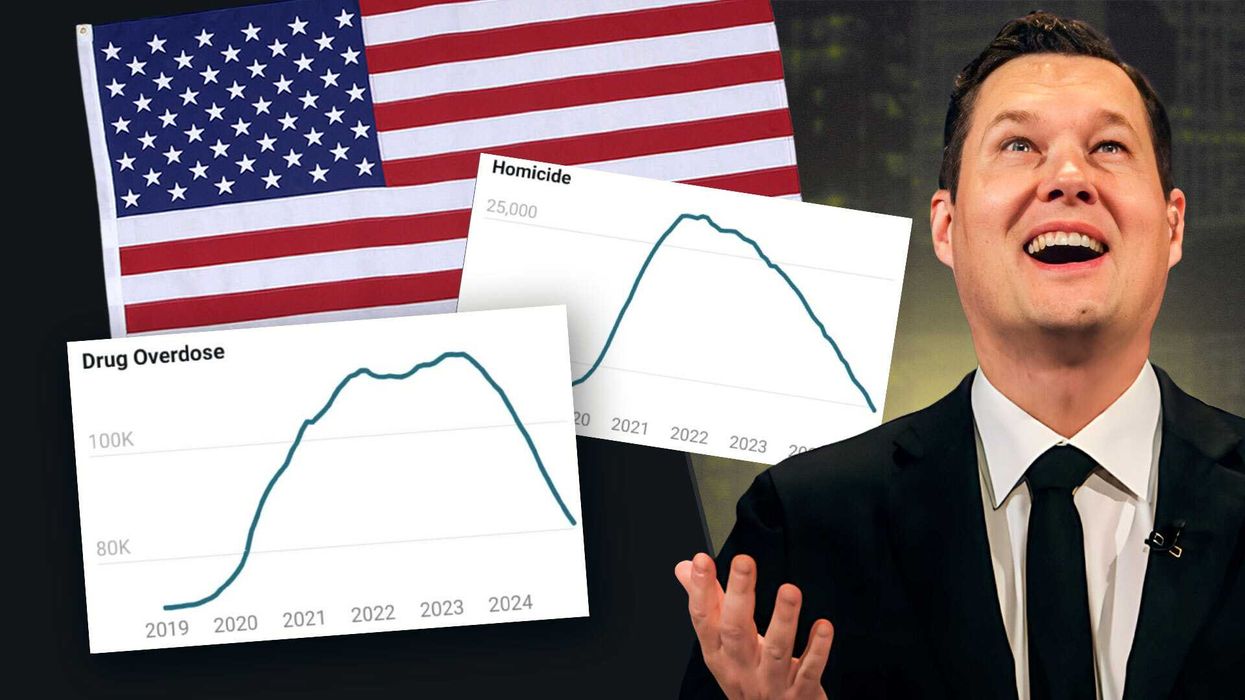
© 2025 Blaze Media LLC. All rights reserved.
"There's certainly a church culture around eating."
The more you go to church, the more likely you are to be fat.That's the conclusion from a new study from Northwestern University, which found that young churchgoers who go to services weekly, or more, were much more likely to become obese in their middle-age years than those who rarely, or never, attend:
What's to blame? One of the authors said a culture of eating, as well as a focus on more obvious vices, could be the culprit.
"Churches pay more attention to obvious vices like smoking or drinking," Matthew Feinstein, lead author of the research and fourth-year medical student at Northwestern University Feinberg School of Medicine, explained to CNN. "Our best guess about why is that...more frequent participation in church is associated with good works and people may be rewarding themselves with large meals that are more caloric in nature than we would like."
At least on pastor agrees.
"There's certainly a church culture around eating," Erik Christensen, a pastor at St. Luke's Lutheran Church of Logan Square in Chicago, told CNN."What I see among congregants in their 20s and 30s is they are very fit and what I see among congregants in their 50s and 60s is disproportionate obesity."
He also suggested a decline in church-sponsored sports activities could be to blame, while noting some irony: "What's ironic to me is that in my congregation we are working on a childhood obesity initiative and spend a lot of time thinking about weight and food. We sit and have a potluck and talk about obesity."
CNN explains how the study was conducted:
The new research, presented at an American Heart Association conference dedicated to physical activity, metabolism and cardiovascular disease, involved 2,433 people enrolled in the Coronary Artery Risk Development in Young Adults (CARDIA) study. The group was tested - at first between 20 and 32 years old - for various cardiovascular disease risk factors such as diabetes, hypertension, and smoking. Those same tests were repeated in the same group over the next 25 years.
Want to leave a tip?
We answer to you. Help keep our content free of advertisers and big tech censorship by leaving a tip today.
Want to join the conversation?
Already a subscriber?
Jonathon M. Seidl is a former managing editor of Blaze News and a best-selling author and speaker. His next book, “Confessions of a Christian Alcoholic,” will be released on October 7, 2025.
Jonathon M. Seidl
Jonathon M. Seidl is a former managing editor of Blaze News and a best-selling author and speaker. His next book, “Confessions of a Christian Alcoholic,” will be released on October 7, 2025.
more stories
Sign up for the Blaze newsletter
By signing up, you agree to our Privacy Policy and Terms of Use, and agree to receive content that may sometimes include advertisements. You may opt out at any time.
Related Content
© 2025 Blaze Media LLC. All rights reserved.
Get the stories that matter most delivered directly to your inbox.
By signing up, you agree to our Privacy Policy and Terms of Use, and agree to receive content that may sometimes include advertisements. You may opt out at any time.






